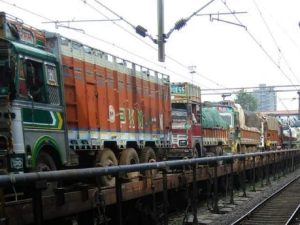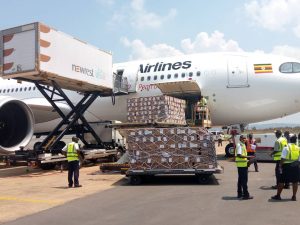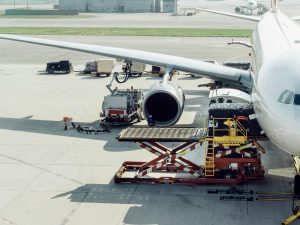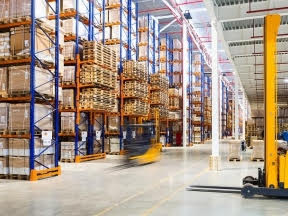Unicommerce processed over 2 Crores quick commerce order items via its flagship platform Uniware in FY25. The orders were processed via Unicommerce’s integration with various leading Q-commerce platforms. This integration enables brands using Uniware to process bulk orders from their warehouses to the mother stores of quick commerce platforms. The integration of Uniware with both brands and various quick-commerce platforms enables the brands to align orders in real time, optimise stock allocations and process these orders efficiently from their warehouse. Uniware’s single-window system allows brands to allocate shipments to pre-integrated B2B courier partners, in the process also ensuring simplified compliances like GST e-invoicing and e-way bill generation. The categories benefiting from this integration include personal care and hygiene products, nutraceuticals and supplements, toys and baby products, snacks and healthy foods, fashion and travel accessories, apparel as well as home decor items. Commenting on the growing scale of quick commerce orders, Kapil Makhija, MD & CEO of Unicommerce, said, “Quick commerce has brought products closer to consumption points, heightening customer expectations and driving retail growth. As brands continue to invest in intelligent and agile supply chains to meet this demand, Unicommerce is proud to be a key part of this dynamic technology ecosystem.
Read More »TIACA appoints Roos Bakker as Chair for 2026-2027
The International Air Cargo Association (TIACA) announced that Roos Bakker, Manager Business Development and Contract Management at CTSN will be the next TIACA Chair, leading the Association for the 2026-2027 period. Roos has served as one of two Vice Chairs together with Emir Pineda, Director, Marketing & Air Service Development Division, Miami International Airport, for the past two years. “Steven Polmans has led the Association for the past 6 years and together with the Board has implemented a transformation program that has aligned TIACA’s activities and services to the needs of today’s air cargo industry. Membership has grown significantly during this period, and we have launched some highly relevant industry programs such as our Sustainability Insights, Roadmap, BlueSky program, annual ACF and an enhanced Awards portfolio. Stevens leadership has been instrumental in securing the success that TIACA is today and his dedication to improving the organization has been inspirational. We now look forward to working with Roos as she steers TIACA to even higher levels of success,” stated Glyn Hughes, TIACA Director General.
Read More »Indore truck operators call off loading goods from Turkey, Azerbaijan
The Indore Truck Operators and Transport Association officially called for a boycott of loading goods from Turkey and Azerbaijan, amid ongoing India-Pak tensions, said reports. In a letter to its members, the association appealed to refrain from loading goods and engaging in any trade with traders dealing in goods from Turkey and Azerbaijan. CL Mukati, president of the Indore Truck Operators and Transport Association said in a statement, “It’s time everyone should come forward and support our country in whatever way we can. We have urged our members to completely boycott goods coming from and going to Turkey and Azerbaijan. We will not load goods from these countries because they supported our enemies.
Read More »CUMTA plans to build Chennai Corridor to ease congestion at MAA
To ease congestion and move cargo with speed, the Chennai Unified Metropolitan Transport Authority (CUMTA) is exploring ways to have a separate corridor from the Chennai airport, in association with the Airports Authority of India (AAI). “We have to discuss this plan in detail with AAI and they should be able to shift cargo operations to the rear side of the airport. If that is agreed upon, this plan will greatly help in decongestion and smooth movement of cargo,” a CUMTA official said in a statement. As part of the recently held first meeting of the City Logistics Coordination Committee, under the Tamil Nadu State Logistics Policy, several plans were discussed to ease regional and urban cargo movement in the city, said reports.
Read More »‘Complete data security & compliance are top priorities for GSSAs’
Complete data security and compliance are top priorities for GSSAs investing in digital platforms according to a recent poll conducted by Awery Aviation Software (Awery) during a session with members of the Federation of Airline General Sales and Service Agents (FEDAGSA). The poll, receiving over 200 responses, was conducted in March 2025, during the International Air Transport Association (IATA) World Cargo Symposium in Dubai, to better understand FEDAGSA members’ current and future digital requirements. “It is absolutely imperative that companies’ data is stringently protected,” said Tristan Koch, Chief Commercial Officer, Awery. “Industry data regulations and certifications have always been essential to our work, and we’ve made long-term investments to ensure our systems meet the highest standards.”
Read More »IWS to showcase tech innovation, new trends in logistics
Block your dates for India Warehousing Show (IWS) scheduled for June 26-28, 2025 at Yashobhoomi, Dwarka, New Delhi. This premier platform brings together key players from across the warehousing, logistics, and supply chain sectors to explore the latest innovations, technologies, and trends shaping the industry. From insightful panel discussions to live demonstrations, the event promises valuable networking opportunities and strategic insights for professionals and businesses alike. Stay tuned as we count down to an event that’s set to redefine the future of warehousing in India. India Warehousing Show remains country’s most successful platform for the warehousing, logistics, material handling, automation, and supply chain sector bringing together buyers and sellers from around the globe. India’s warehousing market continues to boom amid the rising wave of consumerism. As the demand surges for multi-storeyed warehouses, 3PL, material handling, automation and supply chain solutions, India Warehousing Show aims to bring the best suppliers to cater to the burgeoning market.
Read More »‘FIATA to focus on cargo safety, security & sustainability’
FIATA RAP Meet will focus on sustainability, cargo safety, security, multimodal logistics, regulatory policies, etc,” said Keku Bomi Gazder, MD and CEO, Aviapro Logistic Services. He added, “The world is moving towards a new world order where there will be a lot more interaction between countries within the Asia-Pacific region. On the FTAs that India is pursuing with many countries. So, this is a platform where the regional APAC team will have an opportunity to understand what India is contributing towards the industry and how the members of the Asia-Pacific team can benefit from India as well as how India can benefit with its partnership.”
Read More »Amazon picks FedEx for efficient last mile deliveries
Amazon will have FedEx deliver large packages to the retailer’s customers for the first time in six years. The companies reached a multiyear agreement that renews a relationship that ended in 2019. The deal follows a January announcement by UPS that it will cut the number of packages it delivers for Amazon by half by the end of next year, according to the report. Amazon said in the report that it does not plan to use FedEx to replace the business it still does with UPS; instead, FedEx will serve as one of several third-party partners that deliver to the retailer’s customers, per the report. “FedEx joins our other third-party partners like UPS and the USPS that work alongside our own last mile delivery network to help us balance capacity to best serve customers,” Amazon spokesman Steve Kelly said in the report. Amazon’s own logistics network, which is made up of small businesses, delivers more than two-thirds of the retailer’s packages, according to the report.A FedEx spokesperson said in the report, “We have reached a mutually beneficial, multiyear agreement to provide residential delivery of select large packages for Amazon.”
Read More »JustDeliveries raises Rs 5.5 Cr to expand cold chain logistics
JustDeliveries, a new-age cold chain logistics startup focused on mid-mile transport for India’s food and beverage sector, has raised INR 5.5 crore in a funding round co-led by VC Grid and NABVentures. Other participants included LetsVenture, Anay Ventures, and FAAD Network. The funding brings the company’s total capital raised to $2 million (approximately INR 15.9 crore), as per a press release from the company. Operating in a logistics market valued at $200 billion JustDeliveries is working to bring structure and reliability to perishable goods transport. Its plug-and-play, asset-light third-party logistics model is already in place across five major Indian cities: Mumbai, Pune, Bangalore, Delhi, and Hyderabad. The fresh funds will now power expansion into three more cities, including Lucknow and Chennai, while also strengthening its technology infrastructure.
Read More »FedEx to boost Delhi SMEs to innovate & reach global markets
Federal Express Corporation (FedEx) is empowering Delhi small and medium enterprises (SMEs) to scale innovative ideas and reach global markets through its SME Connect series—an initiative bringing tailored logistics, digital tools, and strategic insights to emerging business hubs. “As SMEs accelerate their ambitions, we’re matching that pace with smarter solutions, stronger infrastructure, and deeper engagement,” said Nitin Navneet Tatiwala, Vice President of Marketing, Customer Experience, and Air Network, Middle East, Indian Subcontinent, and Africa (MEISA), FedEx. “Through our SME Connect platform, we’re delivering more than packages—we’re enabling aspirations for SMEs to compete on the global stage.” Launched in 2019, SME Connect has evolved from a knowledge-sharing forum into a dynamic advocacy platform. In FY25, FedEx introduced new formats—SAMPARK, ANUBHAV, and MANTRA—to engage businesses in a more personalized way, aligned to their lifecycle and sectoral challenges, and connect them to global opportunities to thrive in this digital age. These efforts also support national programs like Invest India and Directorate General of Foreign Trade’s, One District One Product (ODOP) and District Export Hub (DEH) initiatives, promoting regional export hubs and sector-specific growth in cities like Delhi. To date, SME Connect has engaged over 5,000 SME customers and prospects through 58 editions held across 55 cities in India. FedEx connects Delhi entrepreneurs to international markets through its robust network, now featuring 23 weekly flights in and out of India. FedEx International Priority®: Critical shipments reach key markets in 2–3 business days. * FedEx International Connect Plus® (FICP):Affordable international e-commerce shipping across 14 AMEA markets, delivering in 1–3 days. *
Read More » Cargo Breaking News
Cargo Breaking News









